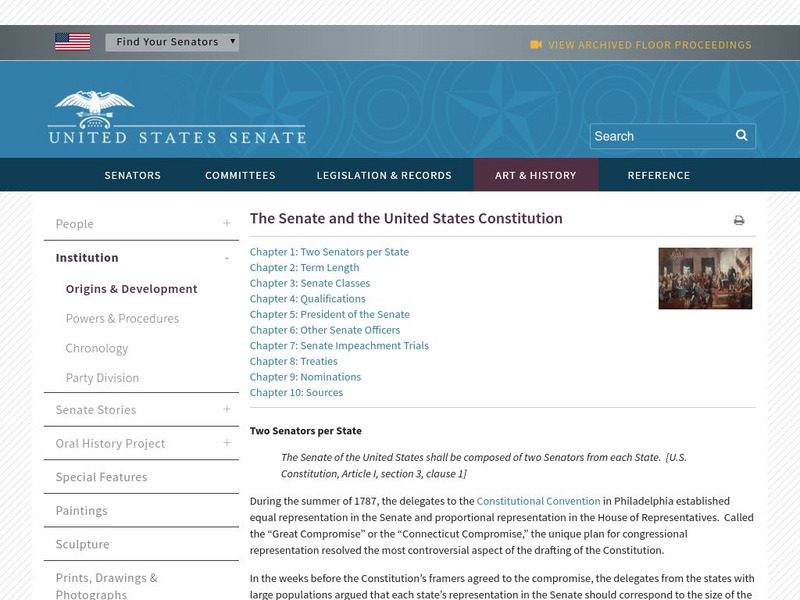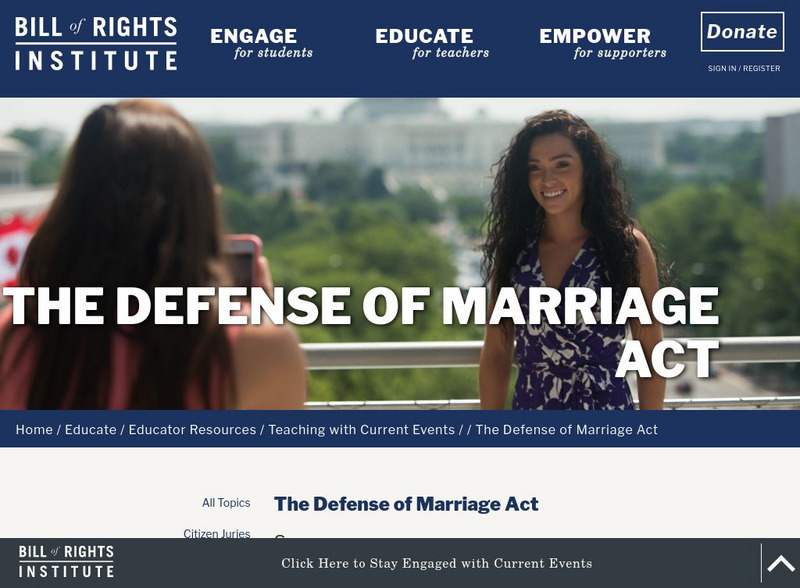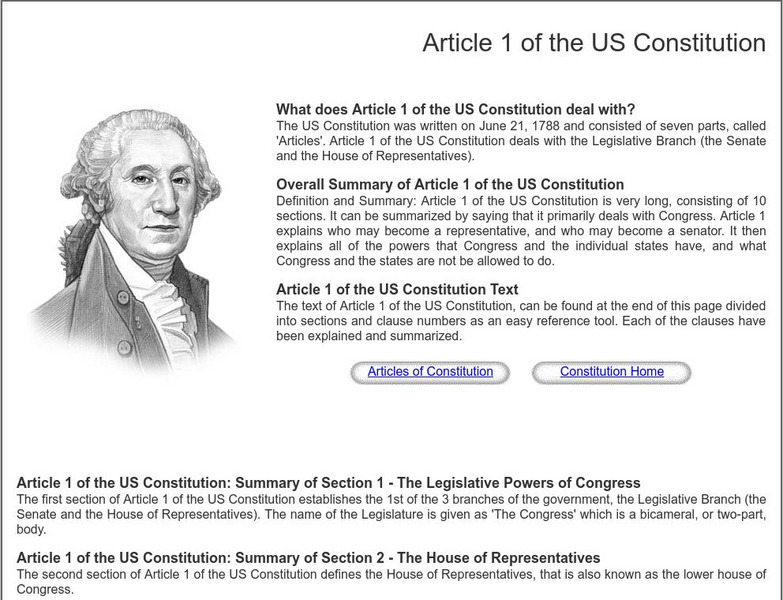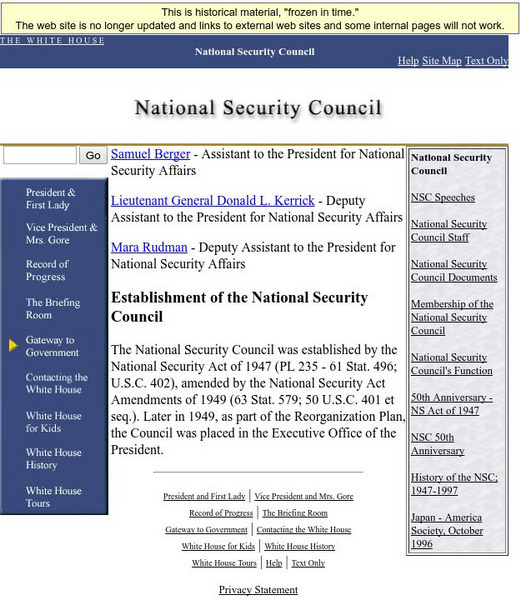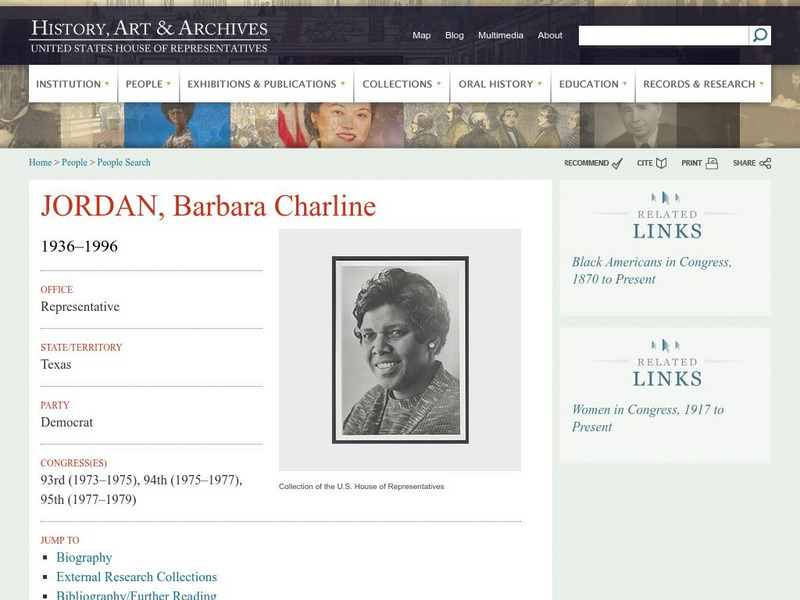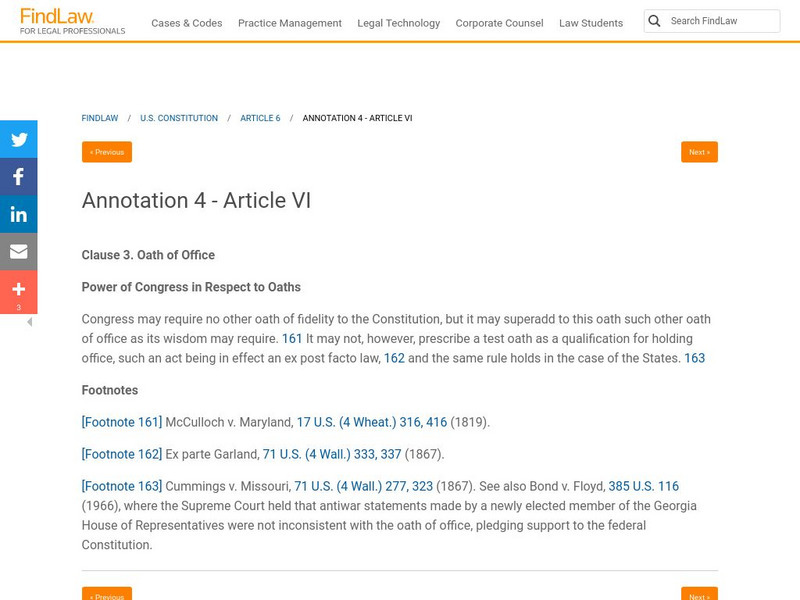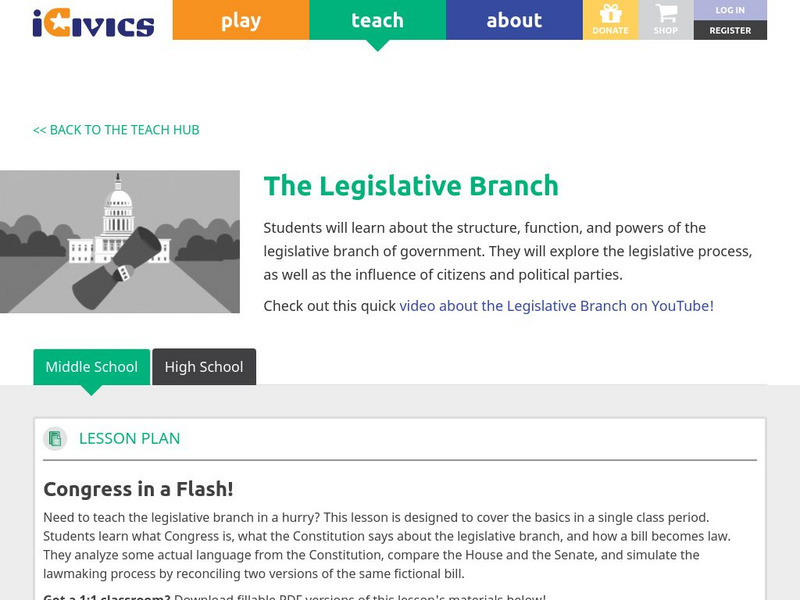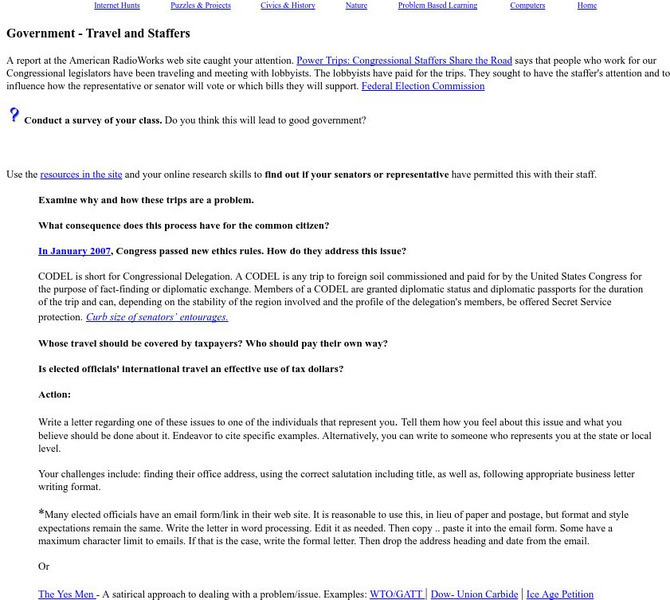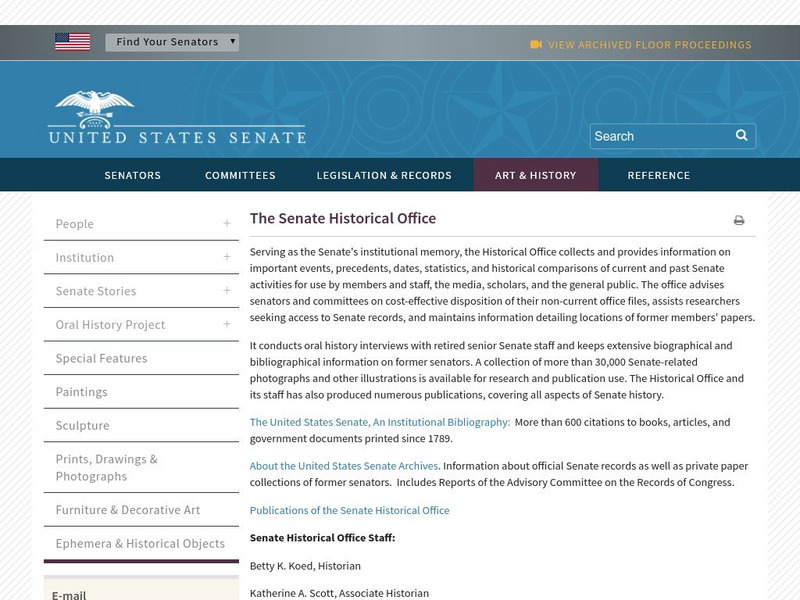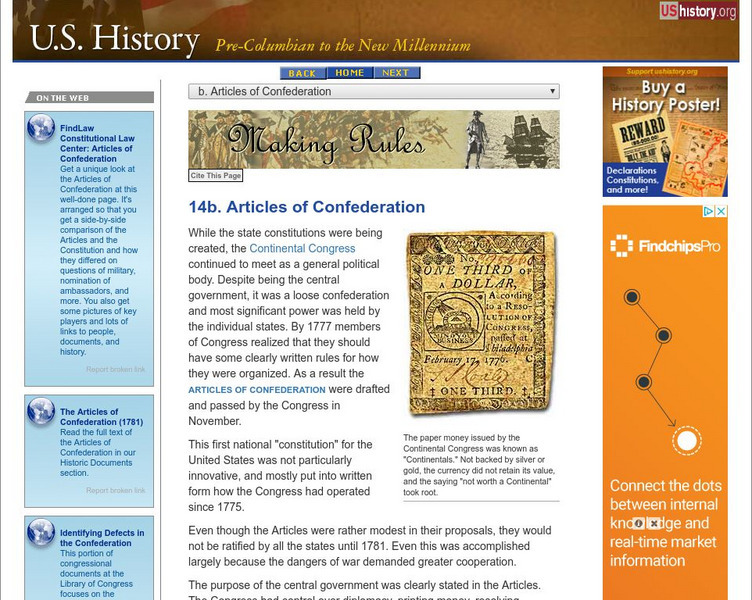Woodrow Wilson International Center for Scholars
Wwics: Congressional Oversight: Rules of the Road Less Traveled
This extremely well-written article is a thorough description of the powers, responsibilities and inherent problems of the current congressional oversight system. It is easily read and well organized. (Oct. 24, 2004)
Library of Congress
Loc: Herblock's Presidents
Historically significant collection of political cartoons featuring U.S. Presidents from Library of Congress online teacher-student resources.
Library of Congress
Loc: Caroline and Erwin Swann Memorial Exhibition Overview
Library of Congress online exhibition overview of the Swann Memorial Exhibition which presents political and historical images, such as caricatures, political cartoons, animation art and illustrations that have the power to evoke...
Independence Hall Association
U.s. History: Alien and Sedition Acts
A great description of the Alien and Sedition Acts, passed by the Federalist Congress in 1798. See how the Federalists tried to hang on to power by restricting voting privileges and infringing on free speech and freedom of the press.
US Senate
The u.s. Senate: The Senate and the United States Constitution
This site from the United States Senate provides information about the evolution of the Senate as the Constitution was being written by the Constitutional Congress.
Library of Congress
Loc: Creating French Culture
Trace the relationship between power and culture using artwork in the collection of France's national library, the Bibliotheque nationale de France. The collection spans a lengthy history, from the reign of Charlemagne (eighth century)...
Library of Congress
Loc: About (A) Face
Doris Ullmann, American photographer (1882-1934), said, "A face that has the marks of having lived intensely, that expresses some phase of life, some dominant quality or intellectual power, constitutes for me an interesting face". This...
Bill of Rights Institute
Bill of Rights Institute: The Defense of Marriage Act
A lesson plan addressing what happens when Congress passes a law or an act, but the law is unconstitutional.
Siteseen
Siteseen: Government and Constitution: Article 1 of the Us Constitution
Presents a summary and the full text of Artice I of the US Constitution. Article 1 primarily deals with Congress explaining who may become a representative, and who may become a senator, all of the powers that Congress and the individual...
This Nation
This nation.com: Executive Order 13132 of August 4, 1999
This Executive Order signed by President Bill Clinton on 8/4/99 is an order that describes the balance between state and federal governments, as warranted by the Framers of the Constitution and federalism.
US National Archives
National Archives: The National Security Council
This National Archives and Records Administration site lists information about the National Security Council. Students can access information about speeches, staff, documents, and more.
US House of Representatives
History, Art, and Archives: Barbara Charline Jordan 1936 1996
One of the first African-Americans elected from the Deep South and the first black Congresswoman ever from that region, read about how Barbara Jordan emerged as a powerful interpreter of the Watergate impeachment investigation.
Other
U.s. House of Representatives
The official site for the U.S. House of Representatives. Includes everything you want to know about it! Examples: the schedule of the House for the week, current events, committee hearings, roll call votes. Find your Representative.
US Senate
The United States Senate
The official site of the United States Senate. Offers many resources for study of current and historical legislation. Also provides forms to contact your senator.
Thomson Reuters
Find Law: Article Iv: Development of the Modern Rule
This resource provides information about Article IV of the United States Constitution.
Thomson Reuters
Find Law: Article Vi: Oath of Office
Read the words in the U.S. Constitution, Article VI, concerning the oath of office. Link to a Supreme Court case which tested the interpretation of this article, McCullock v. Maryland, to view the decisions of the Justices.
iCivics
I Civics: Legislative Branch
Students will learn about the structure, function, and powers of the legislative branch of government. They will explore the legislative process, as well as the influence of citizens and political parties. Register for a free account to...
US House of Representatives
History, Art, and Archives: Us House of Representatives: Onto the National Stage
Women gained the right to vote and began to become active members of Congress as the United States faced many challenges. Early congresswomen served during the Great Depression, WWII, and the start of the Cold War. They had a voice in...
Cynthia J. O'Hora
Mrs. O's House: Government Travel and Staffers
Who should pay for politicians traveling before it violates ethical codes of abuse of power? Legislators and their staff were offered and accepted millions of dollars worth of free trips. This lesson plan explores the ethics of our...
Teaching American History
Teaching American History: Address on Constitution Day
Read the speech given by President Franklin D. Roosevelt on September 17, 1937, honoring the Constitution and applying the tenets of the Constitution to contemporary issues in the 1930s.
US Senate
Explore the Senate's Past
Covers the workings of the Senate and how it evolved, and includes exhibits of historical photos and paintings. The Oral History section has interviews with people who worked in the Senate, where they discuss their careers and the...
Other
Fas: Proposals to Enhance Congressional Oversight
This site is provided for by the Federation of American Scientists. After the Clinton Administration's experiences with Bosnia and Somalia, Congress sought to increase its legislative powers in military involvements and peacekeeping. The...
Independence Hall Association
U.s. History: Articles of Confederation
During the Revolutionary War, it was necessary to put together some sort of central government, primarily to raise and pay an army. Read about the rules finally passed by Congress in 1777, called the Articles of Confederation. See what...
Boise State University
Boise State: World at War: Set the Stage
This 1815 map of Europe is a result of the Congress of Vienna creating a balance of power between the five most powerful countries in Europe. The countries competed in nearly everything, which made it almost inevitable that war would come.




